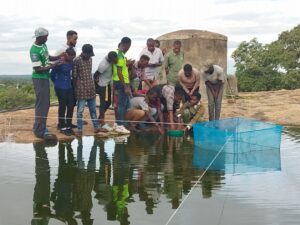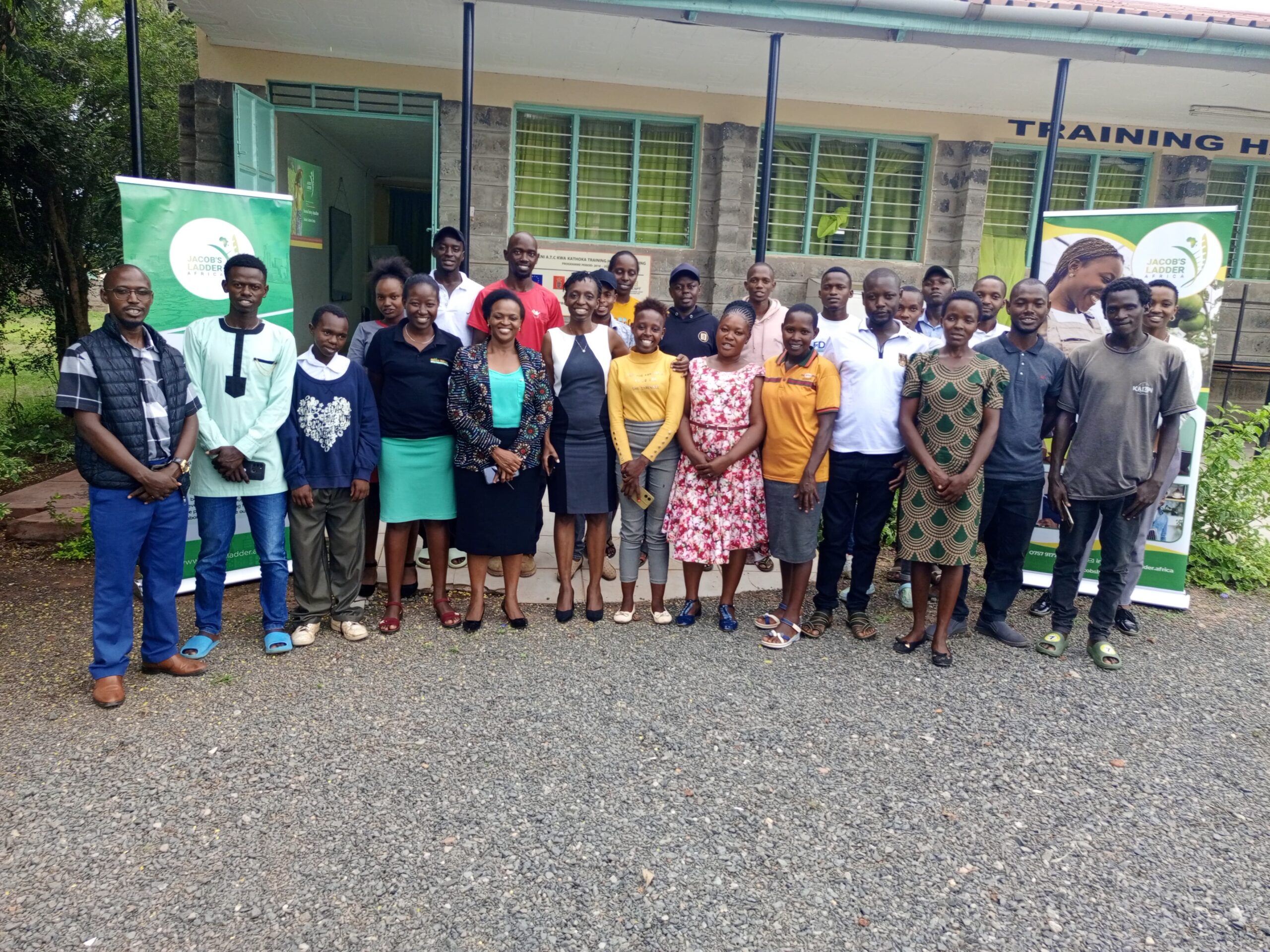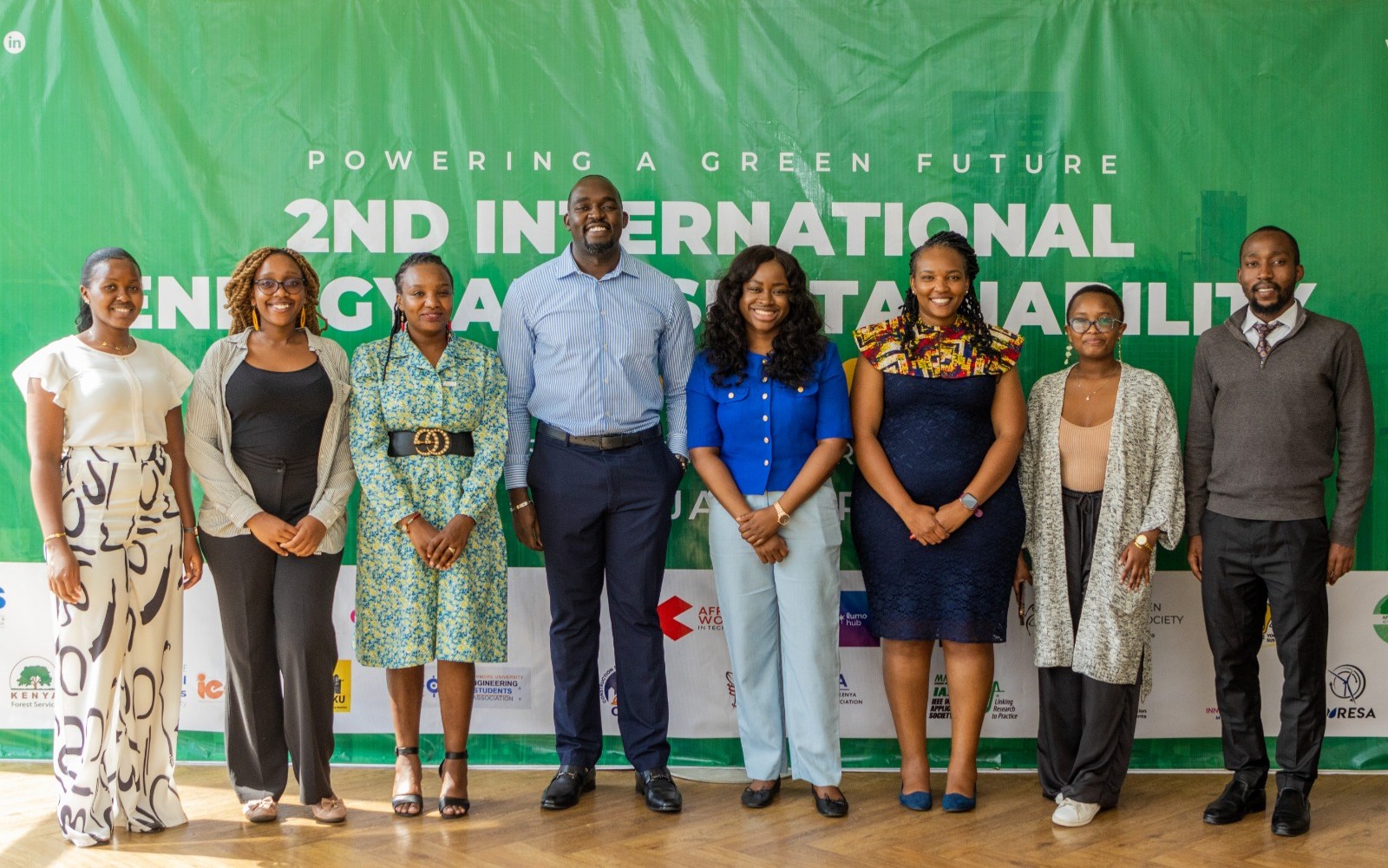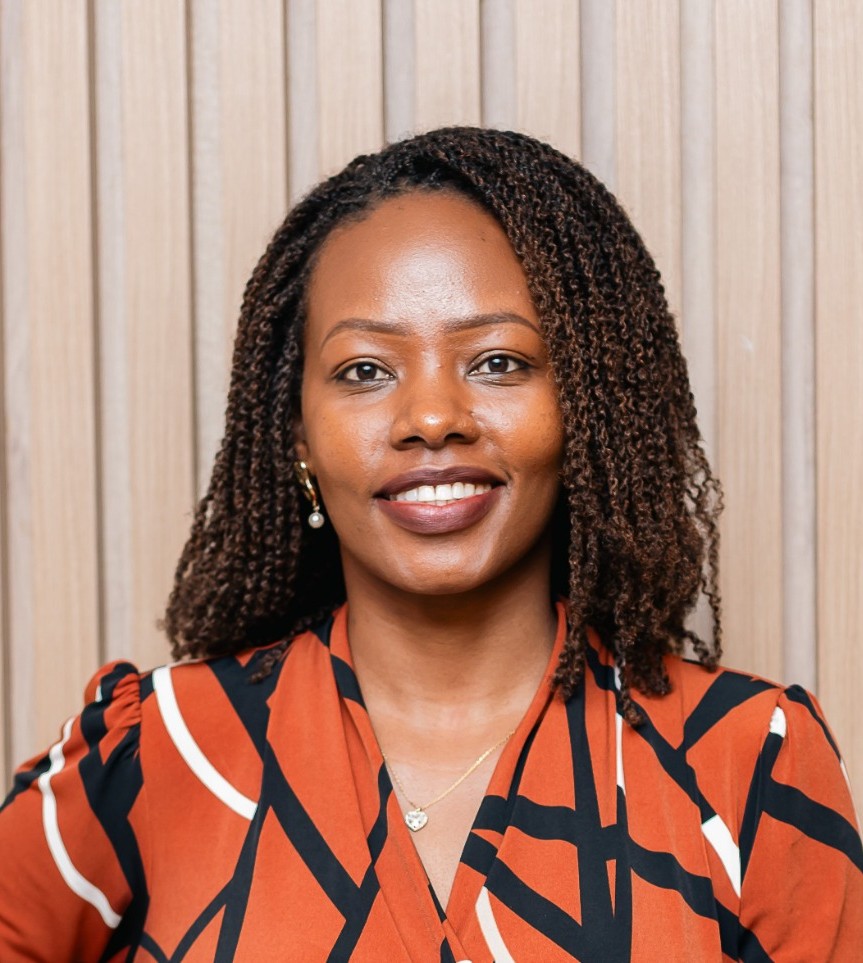Jacob’s Ladder Africa (JLA) organized a rigorous training on Agribusiness and Entrepreneurship (for cohorts 1 and 2) at the Makueni ATC (Agribusiness Training Centre) facility. The development programs team, led by Marceline Obuya, JLA Co-Founder, Karimi Kaburu, JLA Programs Manager and Francis Kamau, JLA Project Officer, were actively engaged on-site, providing training sessions and capacity building initiatives to the participating youths.
The three-day agribusiness and entrepreneurship training, which was conducted from 24th April to 26 th April 2024, instilled critical entrepreneurial knowledge and skills to enable the beneficiaries to not only efficiently manage their fish farming business but also establish enterprises and create more jobs in the process.
Through engaging and interactive discussions, the 20 participating youths learned several agribusiness concepts ranging from business ideation, record keeping, marketing, customer service, managing cash flows, human resource, and financial management among others. The training ranged from basic business skills training to advanced modules such as human resource management, understanding the language of financial institutions and more.
On day 1, the program kicked off with a practical demonstration by Mr. Justus Mwakavi, the Makueni Youth Agribusiness Co-ordinator. Youths learned how to leverage CCTV technology for effective fishpond monitoring – a crucial skill for successful aquaculture.
On day 2, the session was graced by Ms. Joyce Mutua, Makueni County Agriculture Executive who not only encouraged the young participants to explore aquaculture’s entrepreneurial opportunities, but also affirmed the County Government’s commitment to supporting stakeholders like JLA in empowering youth with sustainable employment options.
Day 3 saw Ms. Faith Mumo, Technical Provider, Co-Founder and CEO of Iviani Farm, wrap up the inspiring program by sharing her expertise. She urged the Makueni youths to embrace this chance to improve their lives and also uplift their communities by venturing into aquaculture.
This impactful training program exemplifies JLA’s unwavering commitment to its mission of activating 30 million green jobs in Africa by 2033 by catalyzing an alternative economic future.
Aquaculture Technical Management Training for Cohort 2
Following the successful agribusiness training by JLA, Cohort 2 youths were successfully onboarded to the program and JLA was grateful to meet the target of 20 youths for the two cohorts (7 in Cohort 1 and 13 in Cohort 2). Cohort 2 thereafter proceeded to a 14-day Aquaculture Technical Management Training by Ms.Faith Mumo and officers from the Makueni County Fisheries department at Iviani Farm.
The 13 youths, excited to learn and gain skills in aquaculture, were given a tour of the farm, from the hatchery to fishponds on the first day. During the first week, the cohort was introduced to various key concepts in aquaculture. The participants learnt about fish farming, aquaculture systems such as pond culture and RAS (Recirculating Aquaculture System), catfish and tilapia breeding, water quality, value addition, and sustainable fish farming.
Week two of the training delved into pond construction, feeding models, feed formulation, fish diseases and management, catfish grading, and life skills. The young people also took both theoretical and practical exams to test their understanding of key aquaculture concepts. Regarding feed formulation and feeding models, they were taken to Befa Feeds, an animal feeds formulation company owned by Ms. Faith Mumo, to learn how to identify different fish feed types as well as formulate them. Importantly, each of the participants presented interesting feeding models on how each will be feeding his/her fingerlings. Some planned to call their fish by singing gospel songs while others aimed to hit the feed basin among other methods.
Additionally, participants learnt how to grade their catfish as this is pivotal during the first two months of practicing aquaculture to separate shooters (fast-growing catfish types that feed on younger ones) from other fingerlings. Another key milestone during the training was a positive attitude and mindset transformation. Initially, some young people appeared timid especially when called upon to respond to questions and present in front of their fellow classmates. However, through regular practice, their confidence was boosted along with their understanding in class. Moreover, this allowed for exciting, fun, and educational training sessions.
The training concluded on a high note on 10th May 2024 as the cohort conducted their final exams with all having passed.
The beneficiaries expressed their gratitude to JLA for the unique opportunity given to them to learn aquaculture. They left for their homes each having signed the needful onboarding documents. The beneficiaries were then to have final consultations with their families after which pond construction for the 13 program participants would commence. Improved confidence and aquaculture knowledge among the beneficiaries underscores the importance of rigorous training to bring positive change to communities and the environment.







